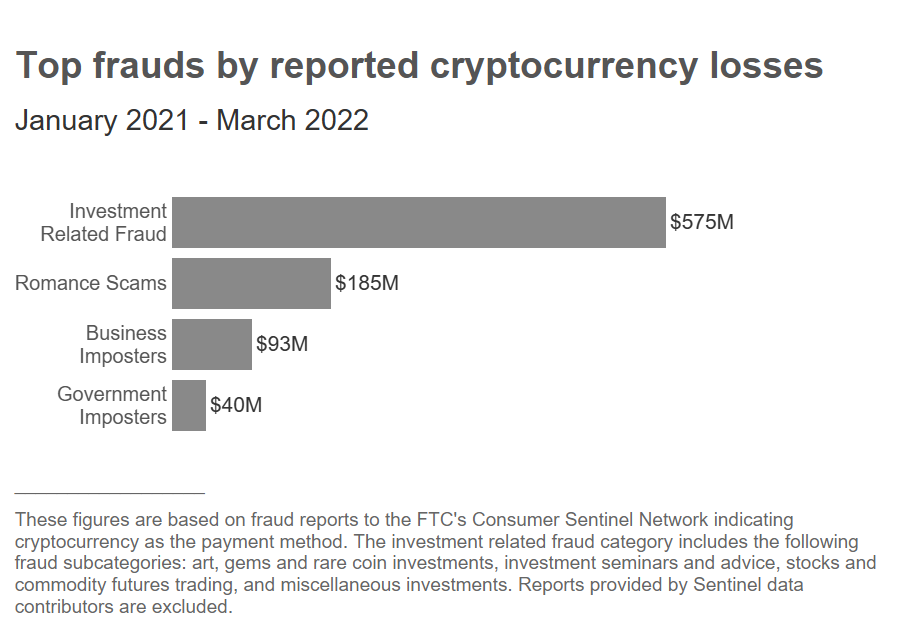Scammers have stolen over $1,000,000,000 in crypto assets since the start of 2021: US Federal Trade Commission
The Federal Trade Commission (FTC) exposes the scope and methods used by crypto fraudsters to amass $1 billion in illicit gains.
According to a new consumer protection report, the FTC said that since the start of last year, more than 46,000 people have had over $1 billion stolen through cryptocurrency scams, with victims losing a median amount of $2,600.
The report provides a breakdown of the digital assets that were used to pay off thieves, with Bitcoin (BTC) taking the vast majority at 70%, followed by stablecoin Tether (USDT) at 10% and altcoin major Ethereum (ETH) at 9% .
The FTC goes on to say that scammers prefer using digital assets for their schemes due to the lack of banking oversight, the inability to reverse a transaction, as well as the average consumer’s lack of knowledge about crypto and blockchain technology.
Regarding the types of scams and losses, the report states,
“Since 2021, $575 million of all crypto fraud losses reported to the FTC were from bogus investment opportunities, far more than any other type of fraud…
Corporate and government impersonation scams come next with $133 million in reported crypto losses since 2021. These scams can start with a text about a supposedly unauthorized Amazon purchase, or an online pop-up alert designed to look like a security alert from Microsoft.
The report also gives examples of the sophistication of some of the tricks, with consumers seeming able to track the growth of their investments or even do a nominal withdrawal test in order to gain trust.

Check Price Action
Don’t miss a beat – Subscribe to receive crypto email alerts straight to your inbox
follow us on Twitter, Facebook and Telegram
Surf the Daily Hodl Mix

Disclaimer: Opinions expressed on The Daily Hodl are not investment advice. Investors should do their due diligence before making high-risk investments in Bitcoin, cryptocurrency or digital assets. Please note that your transfers and transactions are at your own risk and any loss you may incur is your responsibility. The Daily Hodl does not recommend the buying or selling of cryptocurrencies or digital assets, nor is The Daily Hodl an investment adviser. Please note that The Daily Hodl engages in affiliate marketing.
Featured Image: Shutterstock/SerGRAY/Natalia Siiatovskaia










